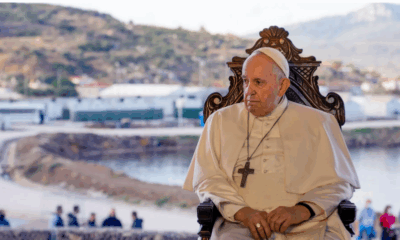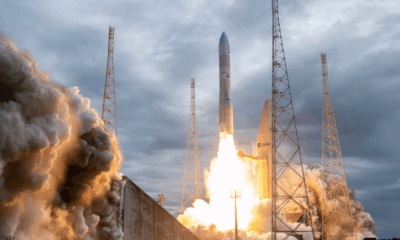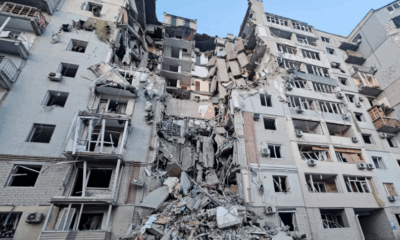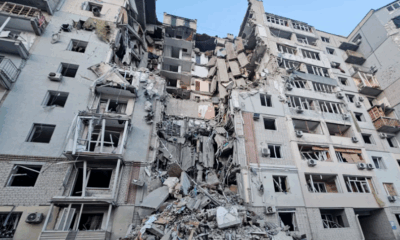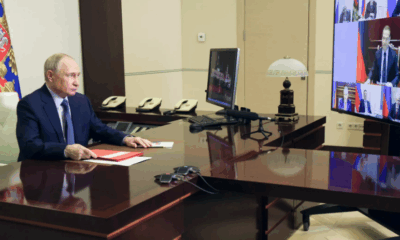News
Romanian Pro-European Parties Unite for Presidential Election Rerun Amid Far-Right Gains
News
Federal Judge Orders Trump Administration to Reinstate Voice of America Staff
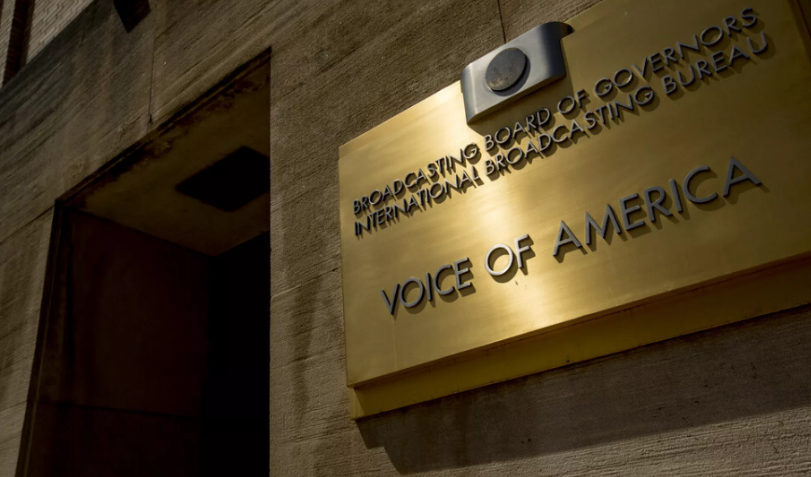
A U.S. federal judge has ordered the Trump administration to reverse its move to suspend operations at Voice of America (VOA) and reinstate hundreds of journalists and contractors who were recently sidelined in a controversial government shake-up.
The ruling, issued Tuesday by U.S. District Judge Royce Lamberth, blocks efforts by the White House to dismantle VOA and other U.S.-funded media outlets, including Radio Free Asia and the Middle East Broadcasting Networks. The decision follows a March executive order by President Donald Trump calling for the “elimination to the maximum extent” of several federal entities, including the U.S. Agency for Global Media (USAGM), which oversees these organizations.
In his order, Judge Lamberth declared that the government acted unlawfully in sidelining nearly all 1,300 VOA staff and notifying some 500 contractors that their roles would be terminated by the end of March. The judge ruled that the administration likely violated several federal laws, including the International Broadcasting Act and Congressional Appropriations Acts, which govern how public broadcasters operate.
“The defendants acted without regard to the harm inflicted on employees, contractors, journalists, and media consumers around the world,” Lamberth wrote. “It is hard to fathom a more straightforward display of arbitrary and capricious actions.”
The judge instructed the government to “take all necessary steps” to restore affected staff and resume full radio, television, and digital operations for VOA and its sister networks.
The Trump administration had previously accused VOA — originally established during World War II to counter Nazi propaganda — of harboring an “anti-Trump” bias and promoting “radical” views. The White House has not yet responded to the ruling, nor has USAGM.
The decision was welcomed by press freedom advocates and VOA journalists.
“This is a significant step forward for press freedom,” said VOA White House correspondent Patsy Widakuswara, who was among the plaintiffs in the lawsuit. “But it’s just a small step — we expect the government to appeal.”
Tom Yazdgerdi, president of the American Foreign Service Association, praised the court’s defense of editorial independence, calling VOA and its affiliates “trusted sources of truth in places where it is often scarce.”
“By upholding editorial independence, the court has protected the credibility of USAGM journalists and the global mission they serve,” he said.
The ruling ensures the continued operation of U.S. international broadcasters, which provide news to audiences in regions where press freedom is often under threat.
News
Vatican Prepares for New Conclave Following Pope Francis’ Death
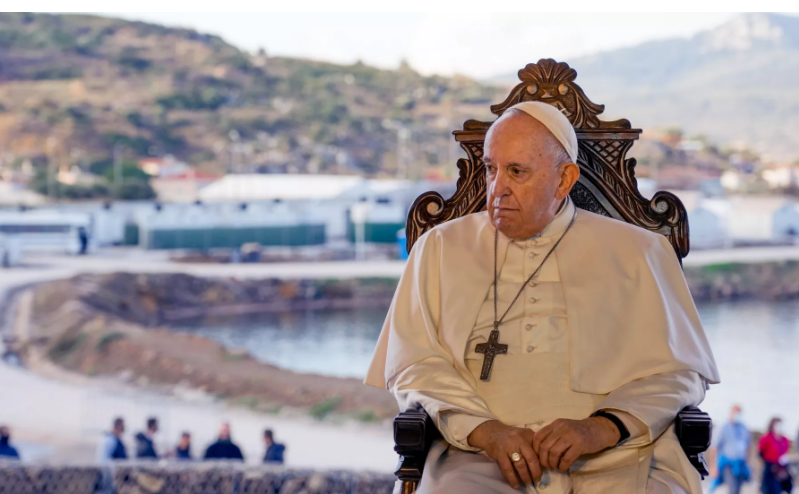
With the passing of Pope Francis, the Catholic Church is preparing for one of its most significant events: the papal conclave. Following the traditional nine-day mourning period known as the Novendiales, cardinals from around the world will gather in the Sistine Chapel to elect the next pope.
As of January 22, 2025, there are 138 eligible cardinal electors under the age of 80 out of a total of 252 cardinals. These electors will vote up to four times a day in strict secrecy until one candidate secures a two-thirds majority. While conclaves can be brief—such as the one-day election of Pope Pius XII in 1939—they may also be lengthy. Pope Francis was chosen after five ballots over two days in 2013.
This year’s conclave comes after a papacy marked by a clear departure from Francis’ predecessor, Pope Benedict XVI. Francis focused on outreach, humility, and inclusion—an approach that may influence the choice of his successor.
Several potential candidates are being closely watched:
-
Cardinal Pietro Parolin (Italy), 70, currently Vatican Secretary of State, is viewed as a top contender. A skilled diplomat and close Francis ally, he would represent continuity, though in a more reserved style. His involvement in the Vatican’s China deal and his deep ties in Latin America make him a leading candidate.
-
Cardinal Luis Tagle (Philippines), 67, is another strong possibility. A favorite of Pope Francis, Tagle leads the Vatican’s evangelization efforts and symbolizes the Church’s growing shift toward Asia and the Global South.
-
Cardinal Peter Erdo (Hungary), 72, is respected among European bishops and has strong ties with African counterparts. His leadership in the Council of European Episcopal Conferences twice suggests wide support.
-
Cardinal Robert Prevost (USA), 69, born in Chicago with missionary experience in Peru, currently oversees bishop appointments worldwide. Despite traditional hesitations around an American pope, Prevost’s global background could make him a serious contender.
-
Cardinal Marc Ouellet (Canada), 80, though now too old to vote, remains influential. He once led the Vatican’s bishops office and represents a more conservative but pastorally sensitive perspective.
-
Cardinal Reinhard Marx (Germany), 71, is known for pushing reforms in the German church and may face opposition from conservatives.
-
Cardinal Robert Sarah (Guinea), 79, a favorite among traditionalists, has long been seen as a strong African candidate, though his tense relationship with Pope Francis may limit his chances.
-
Cardinal Christoph Schönborn (Austria), 80, a theological heavyweight close to Benedict XVI, has also supported Francis’ reforms—bridging both camps.
As the Church prepares for a new chapter, the conclave’s outcome will determine whether the next pope will continue in Francis’ footsteps or shift toward a more conservative or traditional approach.
News
EU Seeks Satellite Alternatives Amid Concerns Over Starlink’s Role in Ukraine
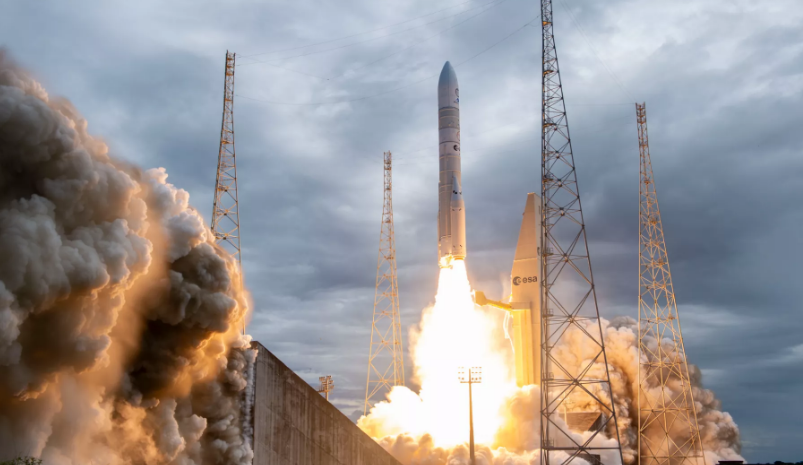
The European Union is actively exploring alternative satellite communication systems for Ukraine, as concerns grow over the country’s reliance on Elon Musk’s Starlink network during its ongoing conflict with Russia.
Ukraine’s military currently depends heavily on Starlink, the satellite internet service developed by Musk’s SpaceX, for secure and reliable connectivity on the battlefield. However, the unpredictable decisions of the tech billionaire have prompted officials in Kyiv and Brussels to seek other options to avoid what many view as a significant strategic risk.
“Elon Musk is effectively the gatekeeper of Ukraine’s battlefield connectivity. That’s a strategic vulnerability,” said Arthur De Liedekerke, Senior Director of European Affairs at consultancy Rasmussen Global.
One alternative being considered is Govsatcom, a secure satellite network operated by EU governments. French MEP Christophe Grudler, a member of the Renew Europe group, said the service will be operational by June and could help supplement Starlink’s coverage in Ukraine if needed. “It is clear that if Starlink decides to cut the signal today, we have options,” he noted.
Ukraine has already shown interest in Govsatcom, which is designed to support public sector communication across the EU. However, De Liedekerke cautioned that while Govsatcom is valuable for government communications, it may not provide the kind of rapid, front-line connectivity currently needed by Ukrainian forces.
Another potential solution is Eutelsat, a Franco-British satellite operator with a growing low-Earth orbit network. While it currently operates only 630 satellites—far fewer than Starlink’s 7,000—it also deploys geostationary satellites and is ramping up its capacity in Ukraine. Eutelsat currently has 2,000 terminals on the ground, with an additional 14,000 expected to be deployed soon. However, the cost per terminal—estimated at €9,000—is significantly higher than Starlink’s €500 units.
Still, Eutelsat’s independence from the U.S. gives it a political edge. “Eutelsat is our European champion… and one we need to support through funding and political will,” said De Liedekerke.
Looking further ahead, the EU is investing in Iris2, a €6 billion satellite constellation aimed at offering ultra-secure connectivity with post-quantum encryption. Developed by a consortium including Eutelsat, Airbus, and Deutsche Telekom, Iris2 is expected to become operational by 2028 and fully complete by 2030.
While the Iris2 project holds promise for future resilience, experts stress the urgent need for diversity in Ukraine’s current communications landscape. “We’ve let Ukraine’s war zone connectivity be in the hands of one man,” said De Liedekerke. “By having options, by diversifying partnerships, we avoid that single point of failure.”
-

 Business11 months ago
Business11 months agoSaudi Arabia’s Model for Sustainable Aviation Practices
-

 Business11 months ago
Business11 months agoRecent Developments in Small Business Taxes
-

 Politics11 months ago
Politics11 months agoWho was Ebrahim Raisi and his status in Iranian Politics?
-

 Business10 months ago
Business10 months agoCarrectly: Revolutionizing Car Care in Chicago
-

 Business10 months ago
Business10 months agoSaudi Arabia: Foreign Direct Investment Rises by 5.6% in Q1
-

 Technology11 months ago
Technology11 months agoComparing Apple Vision Pro and Meta Quest 3
-

 Politics11 months ago
Politics11 months agoIndonesia and Malaysia Call for Israel’s Compliance with ICJ Ruling on Gaza Offensive
-

 Technology11 months ago
Technology11 months agoRecent Developments in AI Ethics in America



